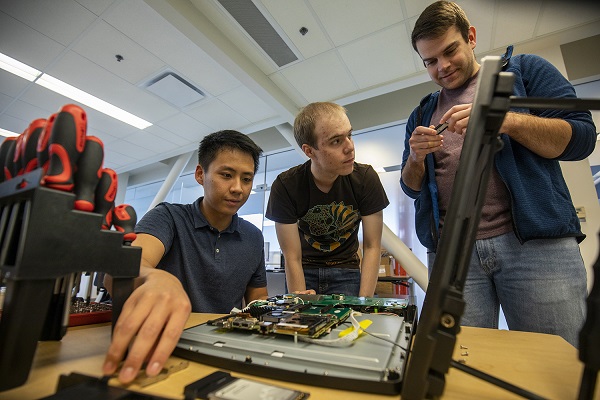
Undergrads Victor Ongkowijaya and Stephen Nurushev and PhD student Matt Bernhard tear open a voting machine still in use in much of the country. (Robert Coelius/Michigan Engineering, Communications and marketing)
Voting machines have largely replaced paper ballots – but many of these machines are susceptible to errors, manipulation, or hacking, raising concerns about the integrity of election results. Professor J. Alex Halderman has been at the forefront of exposing vulnerabilities in electronic voting systems around the world. By pointing to root causes behind these shortcomings, he hopes to “harden” the voting process, ensuring that votes are properly tabulated and preventing an erosion of trust in our electoral system.
This fall, Halderman and Computer Science and Engineering PhD student Matt Bernhard are teaching a new special topics course on election cybersecurity, providing students with a deep examination of the past, present, and future of US elections with perspectives from computer security, tech policy, human factors, and more. “Election security is a severely understudied field, and one of our goals with the course is to inspire students to do this work themselves,” Bernhard says. “I also think it’s a great way to engage students in our democracy; unfortunately young people in this country don’t participate enough, so I hope our course helps inspire our students to become more engaged in that arena.”
